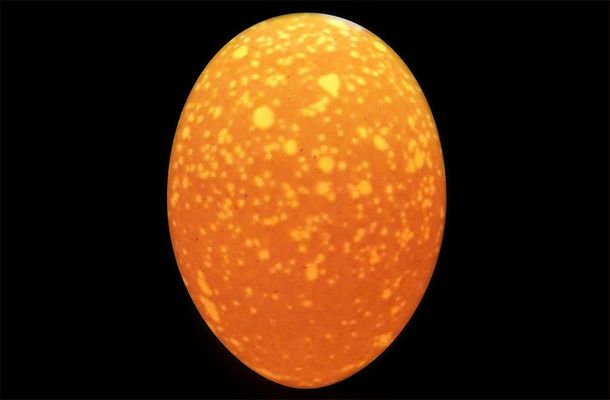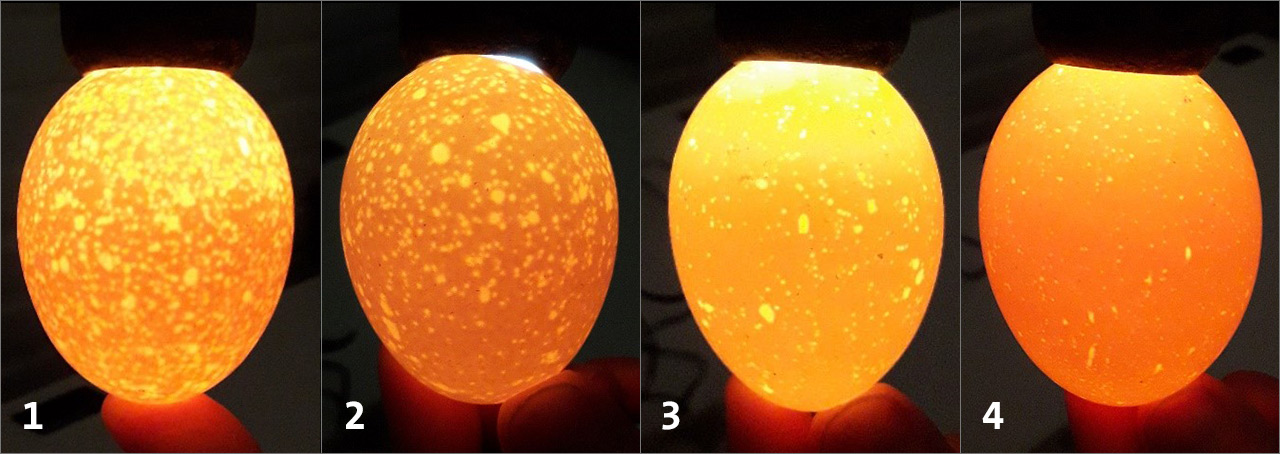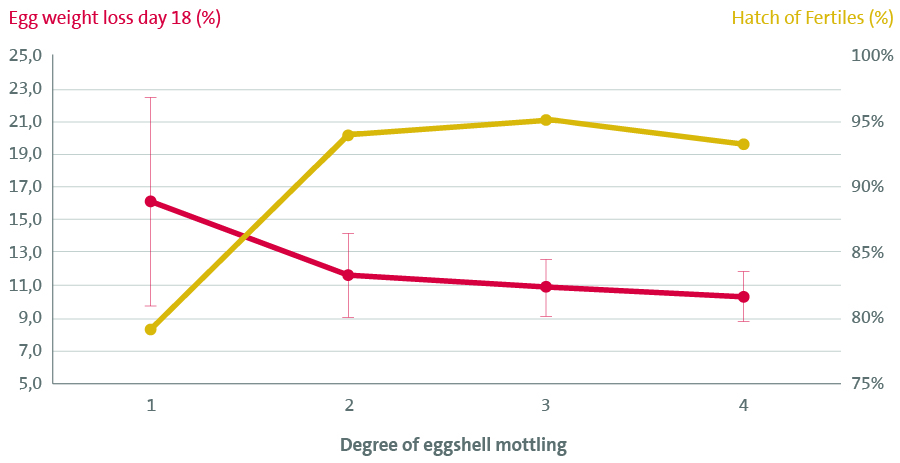Eggshell mottling, does it affect incubation results?
Tags: Egg handling | Whitepaper
, November 28 2018

Candling eggs not only provides information on whether there is an embryo inside; it is also a way to detect abnormalities in the eggshell. Hairline cracks are an obvious example of this, but somewhat less known are the small translucent spots on the eggshell, often referred to as ‘eggshell mottling’. Eggshell mottling occurs in different degrees, from several translucent spots to almost total coverage of the whole eggshell (figure 1).

Figure 1. Degree of eggshell mottling revealed using a flashlight. Category 1 is heavily mottled, 4 is least mottled.
Cause
Eggshell is composed primarily of calcium carbonate crystals (calcite), which are organised in columns. The eggshell pores are located between these columns. The organisation of the calcite columns, and therefore ultimately eggshell strength, is dependent on the protein matrix in the eggshell. Stress and disease in a hen negatively affect the synthesis of this protein matrix, which is reflected in the structure of the calcite columns. When the columns are disorganised, moisture accumulates in the spaces between, and these appear as translucent spots when the egg has dried after laying (Talbot and Tyler, 1973).
Effect on incubation results
Pas Reform did a study to find out if eggshell mottling affects incubation results. 1313 fertile eggs from three different flocks of the same age and breed were all individually tracked and traced during incubation. Different parameters were recorded, including individual egg weight loss, eggshell mottling and eggshell colour. Hatching was also recorded for each egg, and for the non-hatched eggs a break-out analysis was performed to identify the underlying cause. A relationship was found between weight loss, hatchability and the degree of eggshell mottling (figure 2). The more severe the mottling, the higher the average weight loss and the lower the hatch of fertiles. Moreover, the variation in individual egg weight loss was larger for the more heavily mottled eggs. More research should be done on eggs from other breeds and different flock ages to confirm the relationships found in this study.

Figure 2. Relationship between eggshell mottling and weight loss and hatch of fertiles (n=1313). Error bars represent the standard deviation.
Advice
- Consider adding eggshell mottling to your egg quality protocol. Use a candling table or flashlight to check the degree of eggshell mottling for different breeds and flock ages.
- Mottling can increase with flock age, but is also related to stress and disease. Consult your supplier if eggshell mottling is more frequent than usual.
- If you have a heavily mottled batch of eggs, consider checking whether the weight loss on day 18 is not higher than optimal.